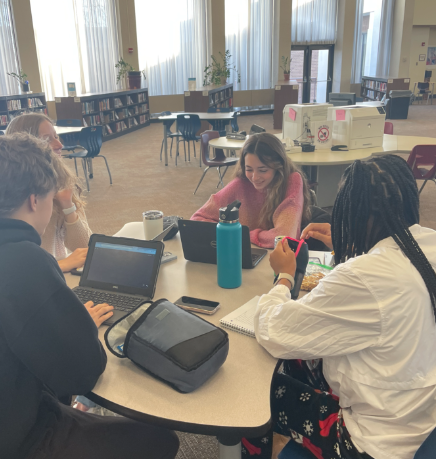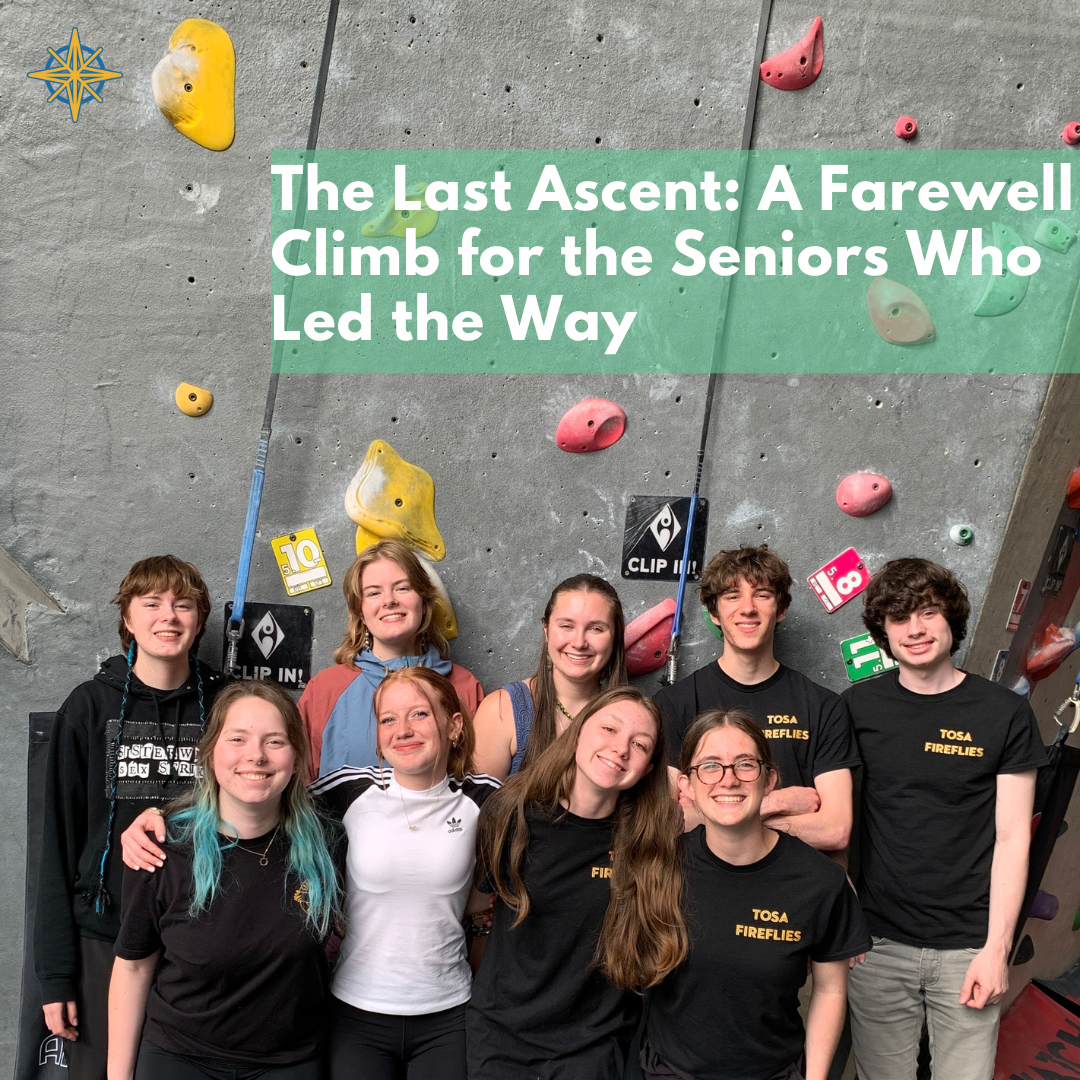Procrastination During Finals Week

unior Addison Bott studies in the ARC during finals week. “I am using flashcards to help me study and remember things for my final exam” said Bott.
January 19, 2023
When Tosa West Freshman Ameila Benedict comes home after school, she gets busy. She gets all of the hard work and important things done so she can have free time to enjoy the rest of her evening.
“(If) I am stressed out or can’t concentrate then I set a 15 minute timer before starting.”
Benedict’s strategy of setting a timer is a way to avoid procrastinating when doing her school work.
When students procrastinate they delay starting or finishing weekly assignments, writing papers, projects, or even studying for an upcoming test.
Procrastination is a coping technique and a way of dealing with the difficult or uncomfortable emotions that come up when you’re faced with a certain task.
If you procrastinate, research says you are totally normal. The trick to understanding why you are procrastinating and to finding ways for you to manage your procrastination.
128 Tosa West students completed an emailed 25 question procrastination survey on November 18th, 2022, that reveals Tosa West students know something about procrastination.
An analysis of the survey shows 18.6% of students at Tosa West say that they almost always find it difficult to start a paper or a project. 30.2% of students say they often find it difficult to start a paper or project.
“I think a part of procrastination has a lot to do with not knowing how to do something. When getting an assignment or project, it can be hard to start it when I don’t know what I am doing, so I wait until the last minute thinking I will know how to do it later, which doesn’t happen. It just gets me more stressed,” said Senior Ava Wollert.
Procrastination can happen for a variety of reasons.
One reason may be a result of putting something off because you don’t know how to answer a question or how to proceed.
This is called purposeful delay.
Research shows procrastinating when something is hard is common. Procrastination is a strategy that may help students be more effective. According to the article, Purposeful delay and academic achievement. A critical review of the Active Procrastination Scale by Marteen Pinxton.
“More recently, Sirois and Pychyl (2013) characterized procrastination as a tendency to prioritize short-term mood regulation over long-term goals (also see Tice & Bratslavsky, 2000). The authors argue that avoiding tedious tasks is a means of coping with the unpleasant mood associated with them, causing self-regulation to break down.”
Another reason procrastination may happen is because of technology .
Technology has been a key thing that contributes to procrastination, and is keeping students from getting their working done on time and efficiently.
Research shows that using a phone is a common occurrence while procrastinating. Procrastination increases problematic phone use such as infinite scrolling on social media apps.
There are 2 types of procrastination in media use, recreational and procrastinatory phone use. Recreational use improves well-being, while procrastinatory use is just another way to avoid doing the intended work. That often creates additional guilt. Both recreational and procrastinatory phone use provide stress relief, pleasure, instant gratification, and satisfaction.
21.7% of students say that they almost always spend too much time on their phone. 21.7% of students often spend too much of their time on their phone.
“I sit on my phone and go on Tiktok, Youtube, Instagram, or Pinterest. It is way more entertaining,” said Junior Jada Martin.
Another reason is that some students may work better under pressure.
10.2% of students say they almost always work better under pressure. 43.8% of students say they sometimes work better under pressure.
According to the article, 3 Reasons Students Procrastinate—and How to Help Them Stop, Psychologists have said that students delayed starting on an assignment because they enjoyed the perceived thrill of working against a deadline. Putting assignments off until the last minute was a way of “adding drama to life,” giving students a rush of adrenaline.
When a student actually knows what they are doing it can be quite easy to get something done rather than procrastinate.
“Once I get into the habit of doing a certain task I don’t have problems when it comes to procrastinating for that task,” said Freshman Amelia Benedict.
According to the article, Why You Put Things Off Until the Last Minute by Mclean Hospital,
Experts define procrastination as a self-defeating behavior pattern marked by short-term benefits and long-term costs.
Most people know procrastination as putting a task off that you need to get done, no matter how difficult the task is. Some people delay what they are supposed to be doing because they have the idea that it makes them feel better.
Psychologists have discovered that procrastination doesn’t have much to do with time management but it is a coping mechanism. By avoiding an unpleasant task and doing something more enjoyable it can give us a temporary boost in our mood
Procrastination is normal and anyone can do it. When procrastinating students can be filled with stress.
According to research by Psychologists, students procrastinate because issues such as exhaustion and anxiety outweigh their self-control and motivation.
When procrastinating 52.3% of students say that it almost always eventually makes them stressed.
If procrastinators don’t feel stressed in the moment, stress has a way of catching back up to them. Studies consistently show that stress levels are higher due to procrastination.
By overcoming your tendency to stall what you are doing, you can improve your mental and physical wellbeing.
Although many individuals procrastinate, and avoid trying to do their work. There are a number of strategies to help minimize or even avoid procrastination. Some things experts suggest to try:
- Practice self-compassion
- Break large tasks into smaller chunks
- Use the Pomodoro technique
- Start small
- Reward yourself
- Attach meaning to the task
“Usually I procrastinate more on things that are not necessary to do, like studying or working out. Things that may be good for me or helpful in school, but are not like homework or projects or chores where other people are holding me accountable,” said Benedict.











